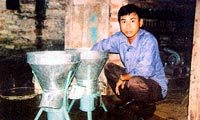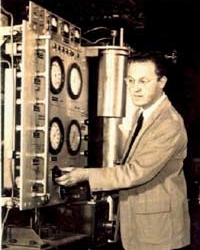The revolutionary open-source tool from MIT, MOCAT, is designed to model the space environment and address the growing challenge of space debris.
In a move to tackle the increasing congestion in low Earth orbit, as well as the rising concerns about space debris, the Astrodynamics, Space Robotics, and Control Laboratory (ARCLab) at the Massachusetts Institute of Technology (MIT) has recently unveiled the MIT Orbital Capability Assessment Tool (MOCAT).

MOCAT allows users to model individual objects and various parameters… (Image: earth.com).
The MOCAT tool consists of two main components: the open-source MOCAT-MC model, which assesses the evolution of the space environment through individual orbit simulations and Monte Carlo parameter analysis, providing both overall insights and detailed analyses of the evolution of each space object.
The other model, called MOCAT-SSEM, employs high-precision modeling techniques, allowing for quick execution on personal computers within seconds to minutes. Both model components can be accessed separately through the GitHub platform.
MOCAT empowers users to model the future space environment over the long term, offering critical insights into the potential risks posed by space debris and the effectiveness of debris mitigation mechanisms.
As satellite deployments surge, the risk of collisions and the proliferation of space debris has become a serious issue. With its unique capabilities, MOCAT can revolutionize the research of sustainable space environments.
Unlike other orbital modeling tools, MOCAT enables users to model individual objects, diverse parameters, closely tracking orbital characteristics, fragmentation scenarios, and calculating collision probabilities. These flexible elements position MOCAT as a powerful tool for more comprehensive space environment analysis and management.
The release of this tool comes at a crucial time, providing stakeholders, including satellite operators, regulatory agencies, and the public, with a better opportunity to make data-driven decisions amid an increasingly crowded and complex space environment.
The expert team at ARCLab has quietly been developing this tool for several years, recognizing the need for open-source space modeling tools to enhance consensus building and decision-making for better sustainable space use in the future.
Richard Linares, the lead researcher of MOCAT and an associate professor of aeronautics and astronautics at MIT, expressed optimism about the tool’s potential impact: “MOCAT represents a significant leap forward in assessing orbital capabilities.” “By providing an open-source and publicly available tool, we hope it will engage the global community in enhancing understanding of satellite orbits, contributing to more sustainable space usage,” added Richard Linares.





















































